State of College Sports: What's your No. 1 biggest issue right now in industry?

College athletics is undergoing seismic change – with more upheaval on the horizon. From the ever-evolving NIL space to the incremental movement toward a potential employee model, to the NCAA’s forward-thinking reform proposal and its own uncertain future, the enterprise is in the midst of a revolution.
In recent weeks, On3’s reporting team conducted exclusive interviews with more than 50 leading college sports voices – commissioners, athletic directors, coaches, collectives, athletes, NIL and legal experts and others – to gather their insights on the most consequential issues.
STATE OF COLLEGE SPORTS: Biggest issue in college sports? Good luck choosing one
Amid the fierce winds of change, there is no shortage of existential issues confronting the college athletics enterprise. We asked: What’s your No. 1 top-of-mind issue in college sports right now?
Responses were lightly edited for length and clarity and are listed in alphabetical order.
Mike Aresco

College sports role: Mike Aresco is the American Athletic Conference Commissioner
“What is the effect of realignment? What is the effect on student-athlete well-being with all that travel? Even with the [College Football] Playoff. We’ll see how that turns out if you have to play four [games] to win a championship. We are putting a lot of stress on student-athletes.
“For me, the biggest issue affecting all of college sports is the P5-G5 divide. I know a lot of people when I mention it kind of roll their eyes. That autonomy thing affects everybody. It affects academics. We’re not an autonomy school. What does that mean? It is also hurting a whole class of student-athletes. Hundreds of thousands of student-athletes have to labor under the second-class citizenship nonsense because of the so-called P5 and G5. It really bothers me. It’s nonsense.”
Chris Aumueller
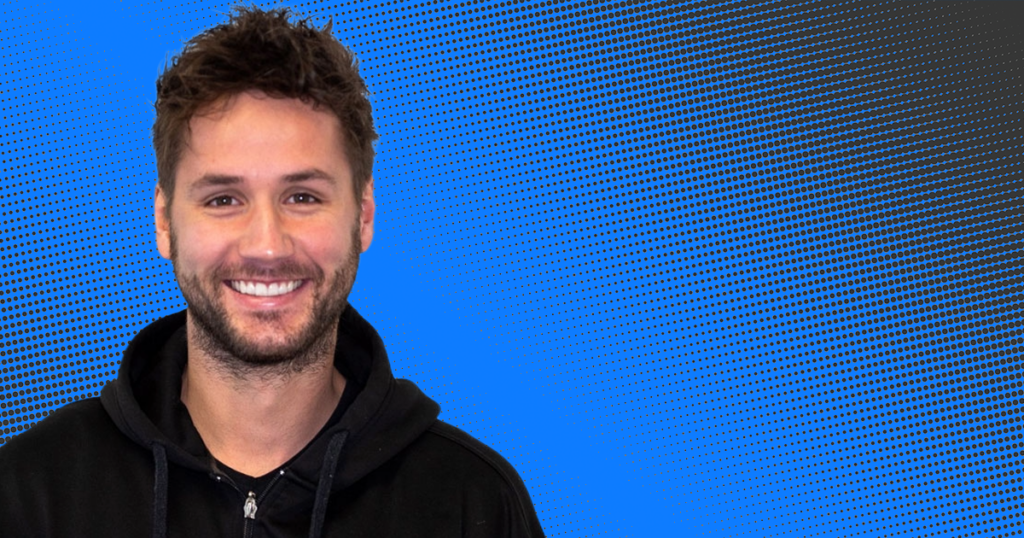
College sports role: Chris Aumueller is a former Nebraska tennis player and CEO of FanWord, an NIL storytelling and brand development solution
“I’m most concerned about the impact of all the ongoing conversations on Olympic sport athletes. I’m not opposed to the idea of evolving the college sports model. In fact, with everything going on, I feel like we need to have that conversation. But I’d like to see more emphasis on the potential consequences of various proposed models on the non-revenue-generating sports and corresponding athletes. We can’t look at college sports exclusively from a business and financial perspective. We don’t talk much about the value of being a ‘traditional’ college athlete and the benefits that come with it anymore.
“Regardless of what the future of college sports looks like, I just urge the leaders and the ones who will make those decisions to not ignore that side.”
Charlie Baker
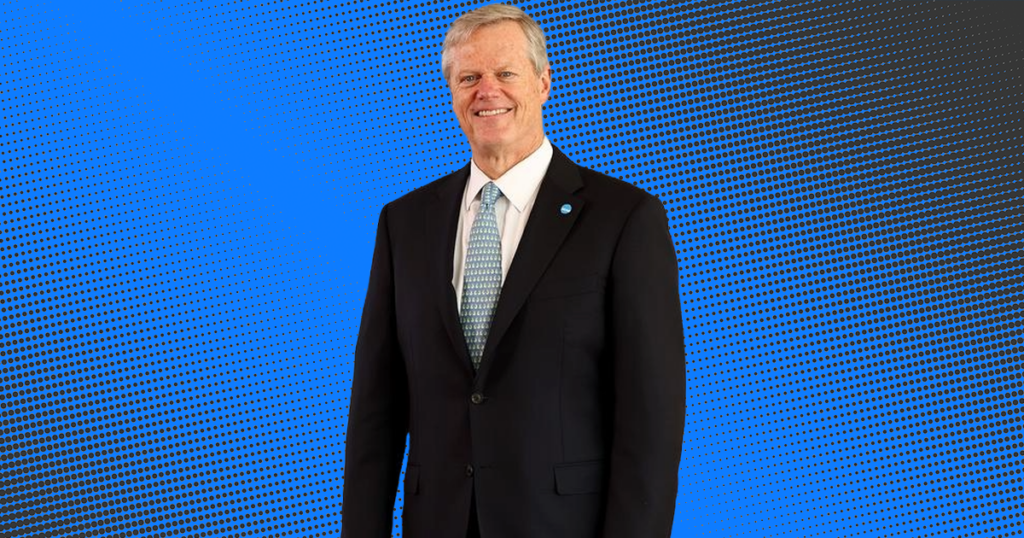
College sports role: Charlie Baker is the NCAA President and a former governor of Massachusetts
“Other than the things we’ve already discussed, I am deeply concerned about the impact of sports betting on young people in college sports. When I was the governor of Massachusetts, I signed a sports betting bill into law but intentionally excluded betting on college sports.
“With the rise of sports betting, not only are fans hoping for a win, but there is now an entirely separate group of people who are literally invested in the outcome of the game. If a student-athlete misses a field goal or a free throw, I’m deeply concerned about the online abuse they can and do receive from bettors.
“I’m also concerned about student-athletes accidentally becoming sources for gamblers by talking about what happened at practice that day, or worse even, being asked by their friends to miss a shot here or there in a way that doesn’t change the outcome of a game but can help their friend win a few bucks in prop bets.
“Soon after I assumed my current role the NCAA surveyed college-aged students about their betting habits, and learned that for the 18-22-year-old population, 58% bet on sports, and for those who are enrolled in college, it’s closer to 70%. In that group, 16% reported having engaged in at least one risky behavior and 6% reported that they have previously lost more than $500 on sports betting in a single day. More concerning, 70% of these risky gamblers believe consistent sports gambling will increase their monetary earnings.
“That’s worrying. And the national office is currently working to do something about it by partnering with EPIC Risk Management to educate student-athletes, coaches and administrators about the potential harmful effects of sports betting. We also are launching a pilot program this fall in some of our championships to monitor abusive online activity directed at student-athletes in games and ensure that they are protected.”
Ross Bjork
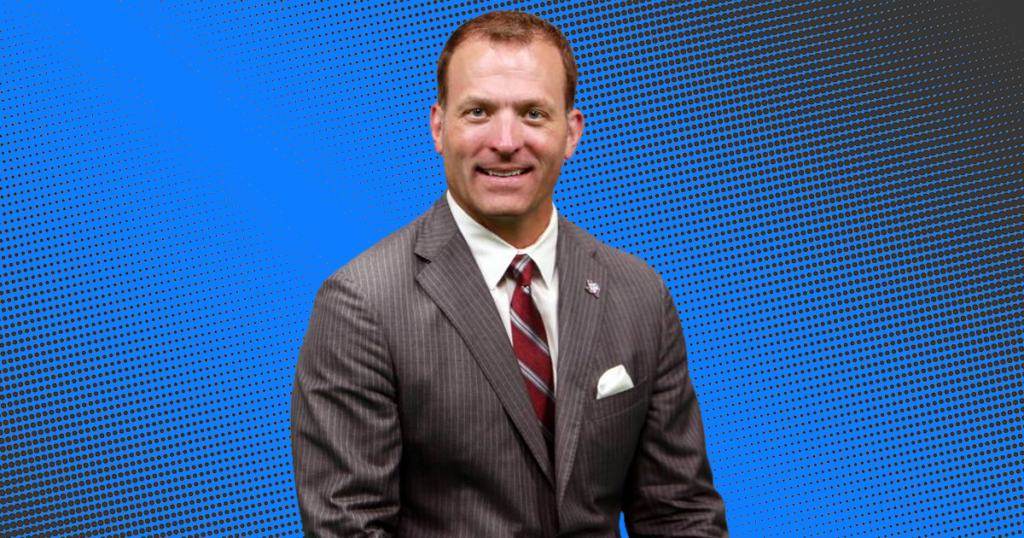
College sports role: Ross Bjork is Texas A&M’s athletic director
“Big picture on a daily basis my thinking is let’s just get to whatever the model is sooner rather than later. Because the uncertainty is basically driving everyone crazy right now from coaches to athletes to administrators – it doesn’t matter the level of administrator from the athletic director to the marketing person. Everybody is just in this uncertain time.
“We hosted a staff meeting a couple of weeks ago with about 50 to 60 of our key leaders. Somebody basically asked me this question, ‘What do you think?’ And I said, ‘Let’s just get to whatever the model is going to be because that’ll provide clarity on so many fronts.’ That’s where my mind is, whatever it’s going to be. Let’s just figure it out together and get there sooner rather than later because what we’re doing right now is not working for everyone, and it’s just not sustainable.”
Dan Butterly
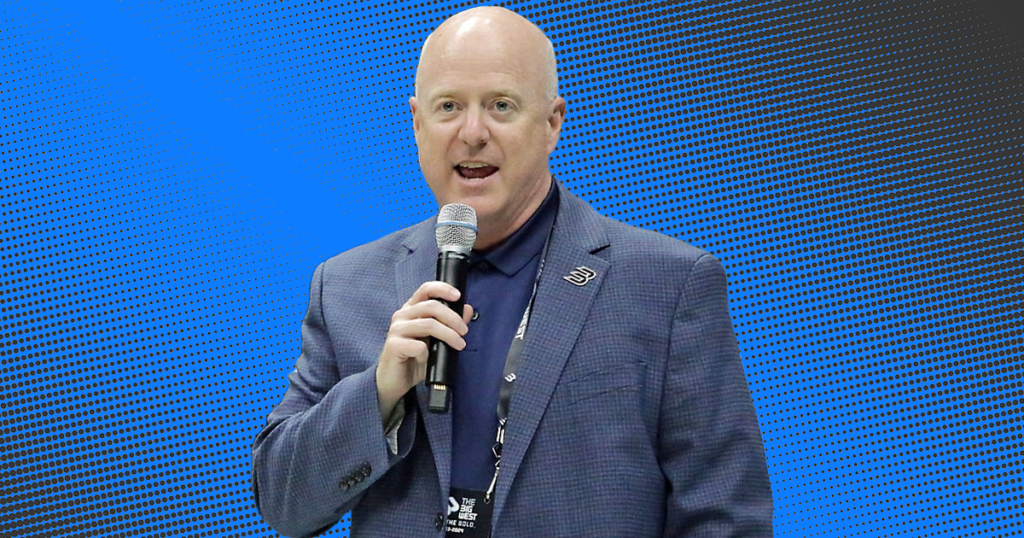
College sports role: Dan Butterly is the Big West Conference Commissioner
“My No. 1 top-of-mind issue is the survivability of the NCAA with the current judicial threats facing the NCAA and its college athletics model. In my opinion, a vast majority of student-athletes are highly satisfied with the collegiate model and the many benefits they receive while competing in a sport they love while receiving a college education. Otherwise, for example, why would a high school athlete play multiple soccer games per day or weekend in highly expensive club sports programs in an effort to be seen and hope to achieve a college athletic scholarship?
“As my wife and I paid all expenses for our daughter to attend college, we know the significant financial benefits of a college athletics scholarship. I would hate to see any of the opportunities that student-athletes currently have go away because the legal threats crippled the collegiate athletic enterprise.
“Should the judicial or administrative law system rule against the NCAA in any of the cases pending against it and its member institutions and conferences, it will have a hugely negative effect on student-athletes in all divisions of the NCAA.”
Chuck Carson
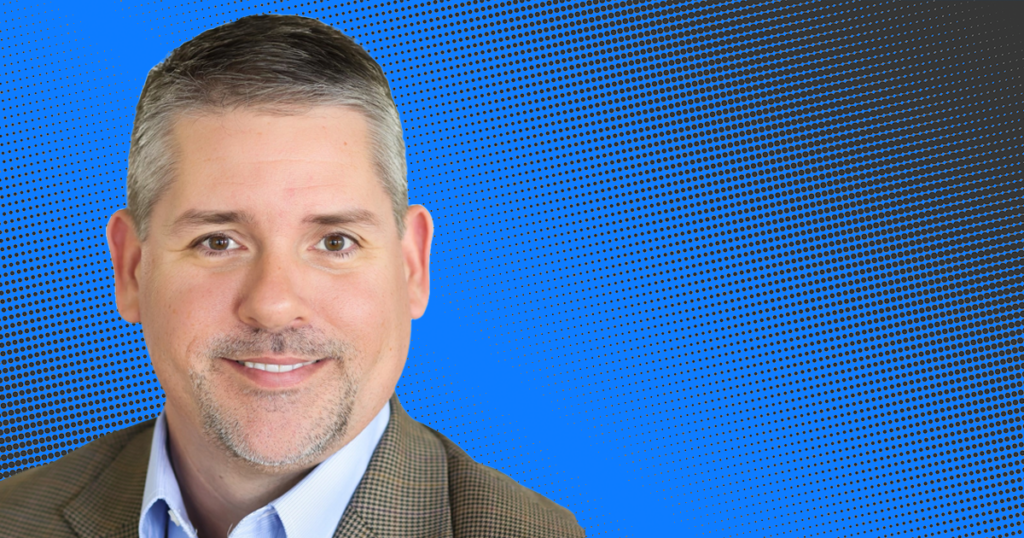
College sports role: Chuck Carson is the co-founder of Trojans Together Collective, a community-focused collective that supports athletes at Troy University
“It’s uncertainty. Everybody’s looking around right now very uncertain about what the future looks like. And we’ve been accustomed to a certain model for decades. That model has been very useful for a lot of people, a lot of institutions and a lot of student-athletes. But there are some glaring deficiencies in that model. And those deficiencies have been brewing kind of under the surface for years. And they’ve really come to the forefront here in the last four or five years, for sure, especially in the last two years. That’s caused a lot of uncertainty.
“If you think about college athletics like a company, like I do, when I’m looking at a company and evaluating a company, one of the worst things you can do to a company is have an environment that’s uncertain. So companies want to know: What’s the tax environment? What’s the regulatory environment? What’s this going to look like, so that we can adjust our model and continue to carry on? That’s where college athletics is right now, this bit of a crossroads or a fork in the road. Okay, we can adjust our model and continue to do this. But we don’t know what the environment’s going to be.
“We don’t know what the regulatory environments will be, the employment is going to be – that has some tax implications as well – so that that environment that college athletics exists in, which has been so stable for so many years, that bag has been shaken, so to speak. There’s so much uncertainty right now that, really, it’s hard for everybody to get on the same page and know what’s next. We’ve got to have something nailed down. The NCAA is a good example. They’re putting out guidance – not necessarily rules – just guidance. That guidance is changing. I think that reflects the environment we’re in. There’s just a lot of uncertainty at the moment.”
Joe Castiglione
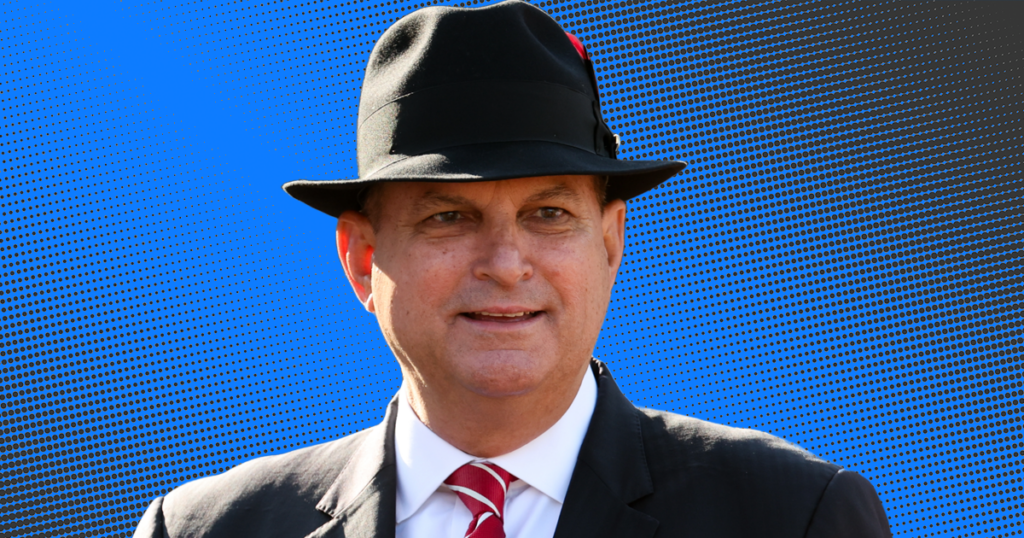
College sports role: Joe Castiglione is Oklahoma’s athletic director
“The No. 1 priority as I see it is creating a sustainable financial model for the future of college athletics. The unknown impact of significant retroactive and future revenue sharing looms large. I support establishing a new structure that allows us to rightly share some revenue with student-athletes. That has to be part of our path forward.
“However, I also recognize that path takes us to an unknown reality with unpredictable economic implications for our departments, dramatically impacting how we can support a broad-based athletics program. Almost universally across the national college landscape, income from football and, sometimes, basketball, subsidizes all other sports. It’s just a fact that the number of opportunities for student-athletes to participate will decline if we’re unable to create a sustainable financial model for the new era.”
Bubba Cunningham
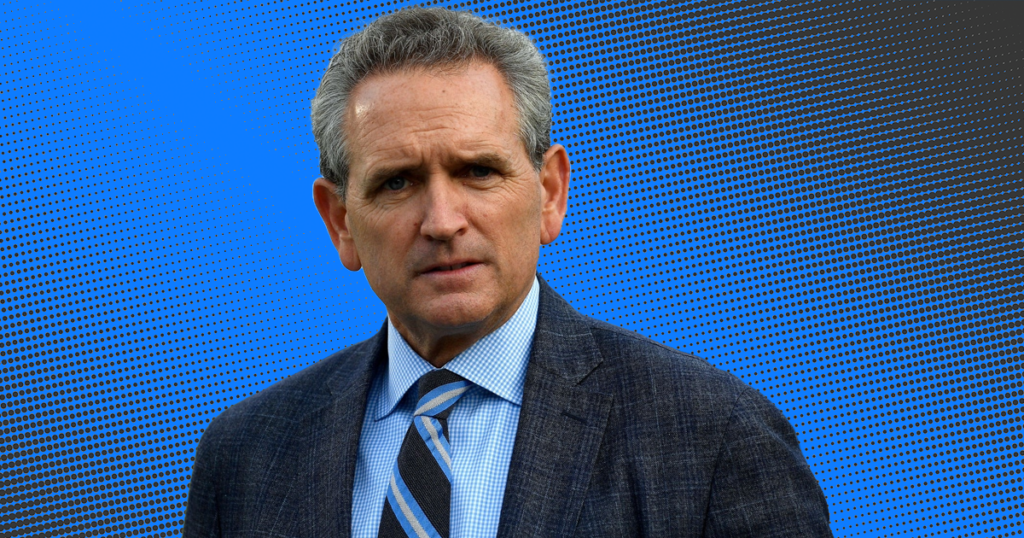
College sports role: Bubba Cunningham is North Carolina’s athletic director
“Higher education is a gateway to broader life opportunities, and participation in college athletics has allowed countless students to take advantage of those opportunities. As college athletics continues to evolve, we can’t lose sight of how to continue to provide opportunities.
“The unique revenue-sharing model of college athletics today – in which donations, television and sponsorship funds, and ticket sales are shared for scholarships and expenses across a wide array of sports – has supported broad-based participation that cuts across gender, race, ethnicity and socio-economic lines. We need to continue to explore models that share revenue with those who generate it while maintaining opportunities that support the Olympic movement and broad-based programming.”
Beth Goetz
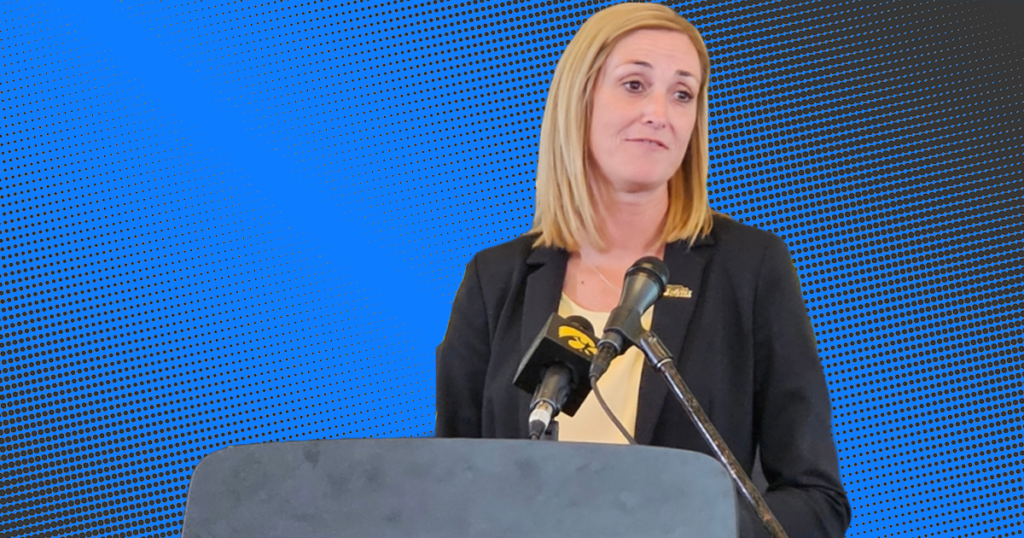
College sports role: Beth Goetz is Iowa’s interim athletic director
“My concern is that we’re in a position where, to some extent, we’re trying to be reactive – and reactive on a lot of fronts. And so how do we control our own destiny? And did we miss that opportunity? I think it’s arguable that perhaps we’ve missed that opportunity, and that’s why we’re in this position because we didn’t take ownership and make some changes at an earlier point.
“So now it’s how do we help guide where we think the industry should be, how it should go, how we do that in the best interest of our campuses, certainly our conferences and, nationally, in a way that provides this great thing that we know is just a uniquely American experience for student-athletes at all levels.
“But you’ve got a lot of factors that we’re responding to – lawsuits and pieces of legislation, whether that be in states or otherwise, and when you’re in response mode, as opposed to proactively creating your destiny, that’s a difficult position. We’ve got great leadership at the Big Ten with [commissioner] Tony Petitti; I certainly think [NCAA] President [Charlie] Baker has come in and done a great job. So it’s incumbent upon all of us to continue to find the right path for each of us individually, and certainly the collective, as a conference and so forth, to figure out how we navigate all these things that are coming at us now.”
Dan Greene
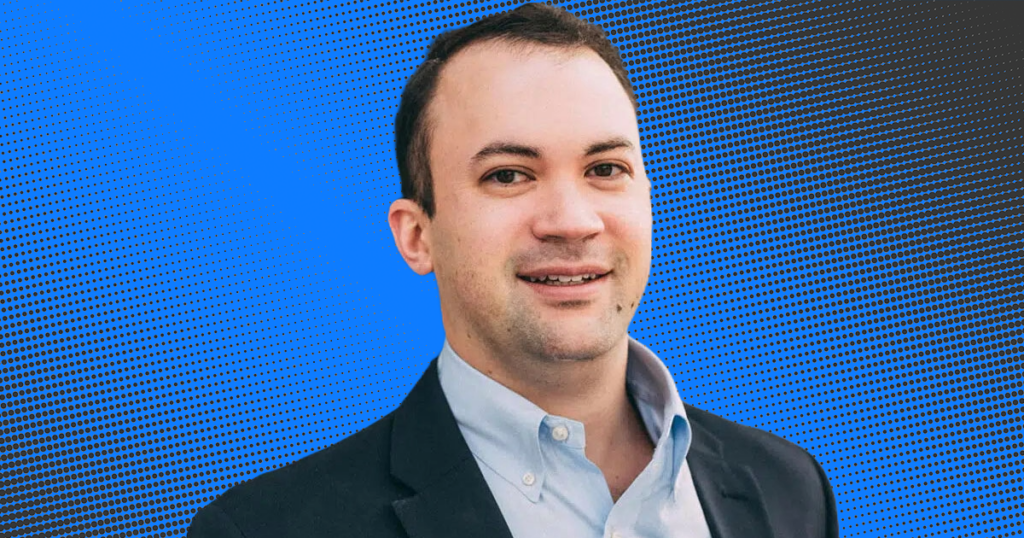
College sports role: Dan Greene is an NIL expert and associate attorney at Newman & Lickstein
“My biggest concern at the moment – and always – is the well-being of the athletes. While NIL is great and brings a lot of new opportunities for athletes, it also brings new responsibilities and pressures on the athletes who are already overwhelmed with the demands of being an athlete. At the end of the day, schools, conferences, and athletic associations should be prioritizing the well-being and mental health of its athletes, so support, education and communication are vital.”
Steve Hank
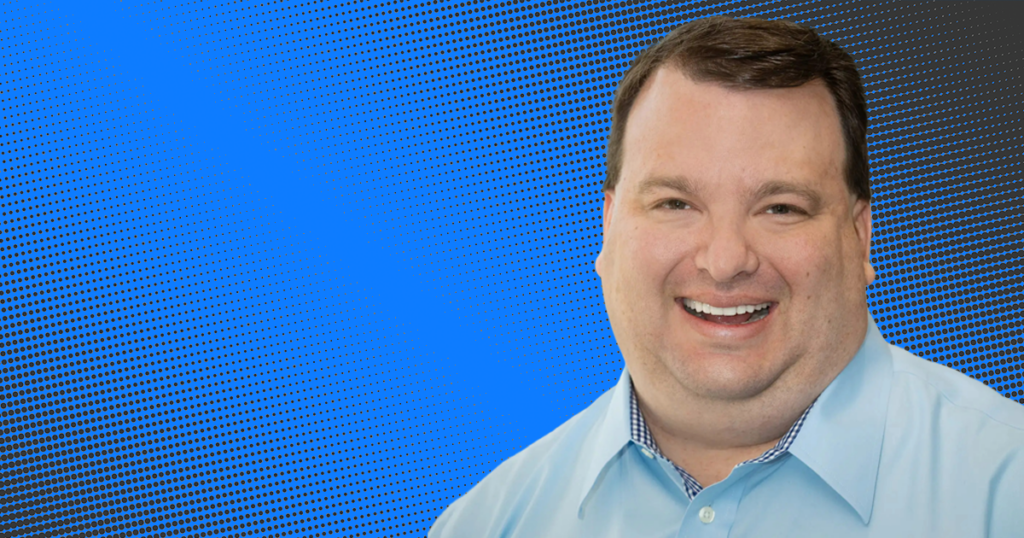
College sports role: Steve Hank is Executive Vice President of Collegiate Athletics at Affinaquest, a leading data management company in college sports
“People are really forgetting about the fan and why collegiate athletics actually exists. Collegiate athletic departments are the front porch of their institutions that create community and bring people to get behind a common cause. There are many new things coming because of conference realignment and resumption of the old. USC and Michigan are going to bring some exciting new things [when they play].
“But the shine on that new change in those new games is going to wear off. We’re going to be forced to go back to the well, and the well is that traditional fan support. And right now, it’s being taken for granted. And if you take it for granted for too long, it’s really dangerous.
“Quite frankly, the industry is playing with fire. If you play with fire long enough, eventually you’re going to get burned. So we can’t take our eye off the ball. We have to start engaging with our fans in personalized and individual ways, including them in the process. Right now, I think they’re being ignored. And people only want to be dictated to for so long before they cut the cord. If this chaos continues for much longer, people will just start to go, ‘It’s not worth it.'”
Christy Hedgpeth

College sports role: Christy Hedgpeth is a former Stanford basketball player and President of Playfly Sports Properties, a sports marketing company with a portfolio of 25 universities and conferences
“Who is stewarding the future of the ecosystem and preserving all that makes college sports powerful for student-athletes and a compelling part of American culture for fans, not to mention drives immense marketplace value? A major component of what makes college sports compelling is the potential for schools of all sizes to experience success. Talks of super conferences breaking off from the system entirely puts all of that at risk.
“Smaller programs play an important role in the ecosystem. Once they lose the ability to dream of competing and punching above their weight class, there is a real risk to the ecosystem as a whole and the fandom that drives college sports. A real example is the recent NIT decision to discontinue automatic qualifications of smaller conference champions in favor of more power conference teams.”
Darren Heitner
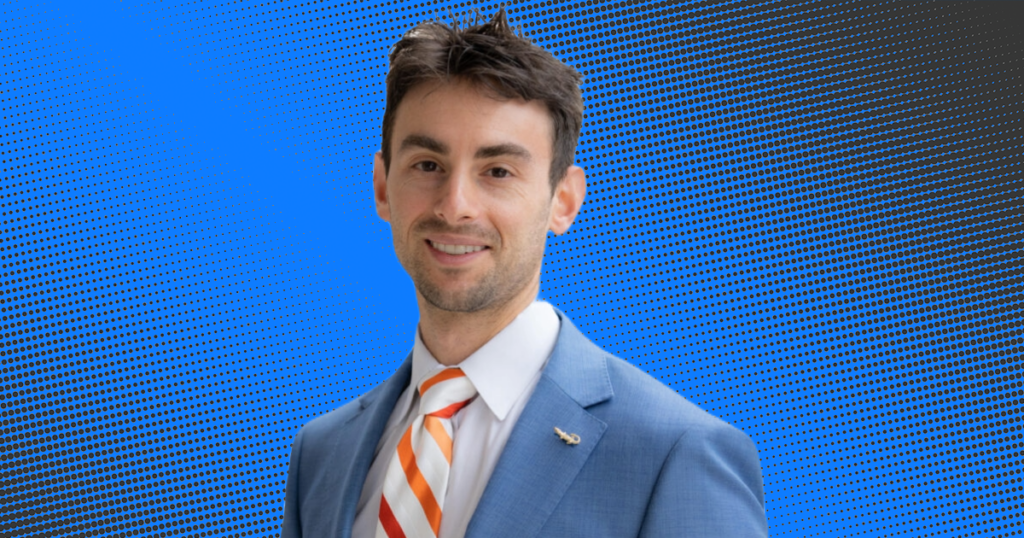
College sports role: Darren Heitner is one of the top lawyers in the NIL space
“Certainly it has to be employment and the various fronts that it’s playing out. Whether it be the judicial branch, or the National Labor Relations Board, or perhaps even Congress, given the amount of petitions there have been for Congress to intervene. So it’s obviously a very key area where even the General Counsel of the NLRB has chimed in. There are just so many different pending efforts that are progressing their way through the various processes.
“Ultimately, clarity will come. It may be after various appellate processes. But that’s absolutely a key area because it could turn college sports on its head.”
Michael Hsu
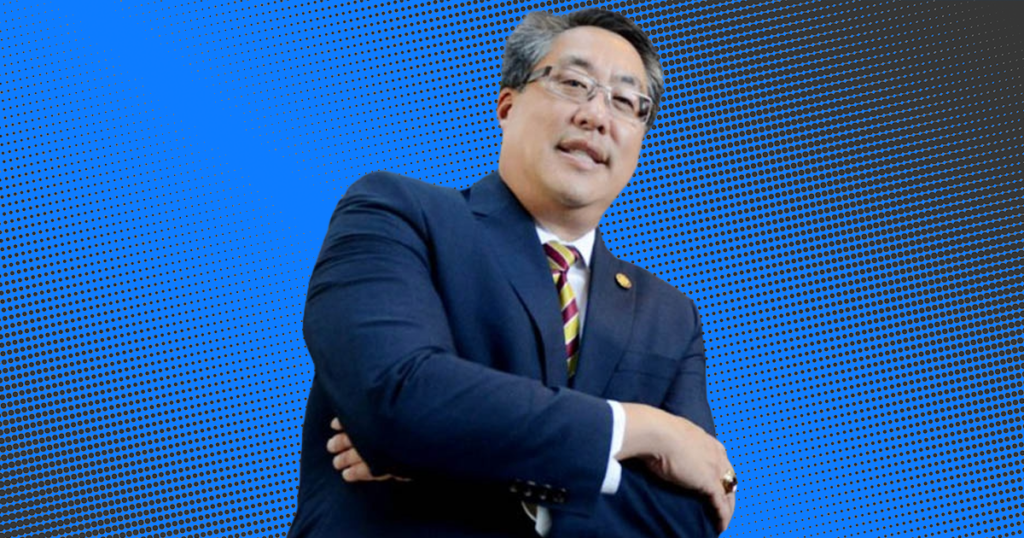
College sports role: Michael Hsu is co-founder of the College Basketball Players Association
“Gambling is a big one that is going to affect things going forward. There is going to be another big point-shaving scheme at some point. But the biggest problem I see in athletics today is just the unwillingness to recognize the need for change – and to actually change. That is the biggest one.”
Sean Hughes
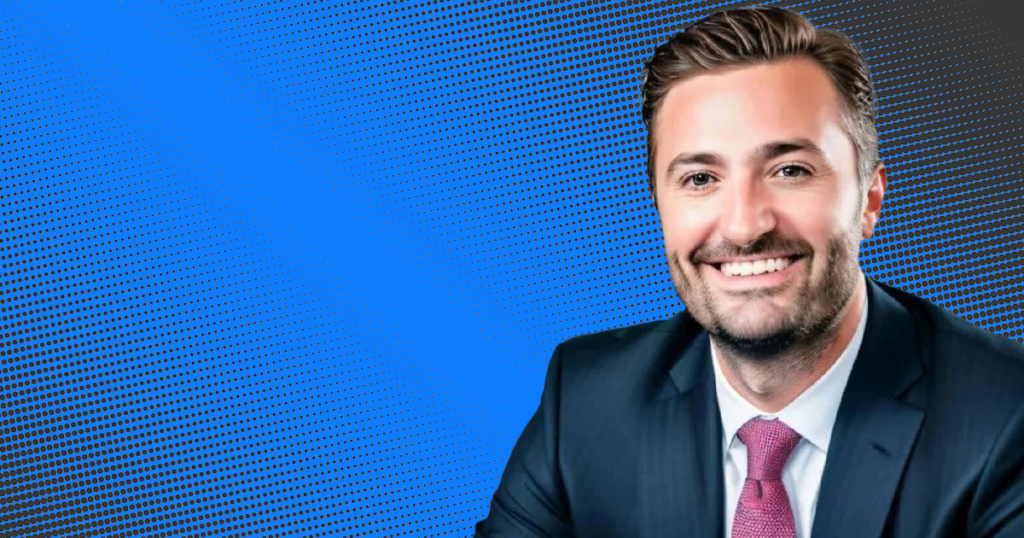
College sports role: Sean Hughes is co-founder and CEO of Athliance, a top NIL compliance solution
“The blurred line between collegiate and professional sports is the paramount issue. While we are in a transformative phase, it’s vital to ensure that the uniqueness of college sports – its tradition, passion and developmental role – isn’t overshadowed by commercial interests. Balancing athlete rights with preserving the essence of college athletics is the tightrope we walk.”
Walker Jones
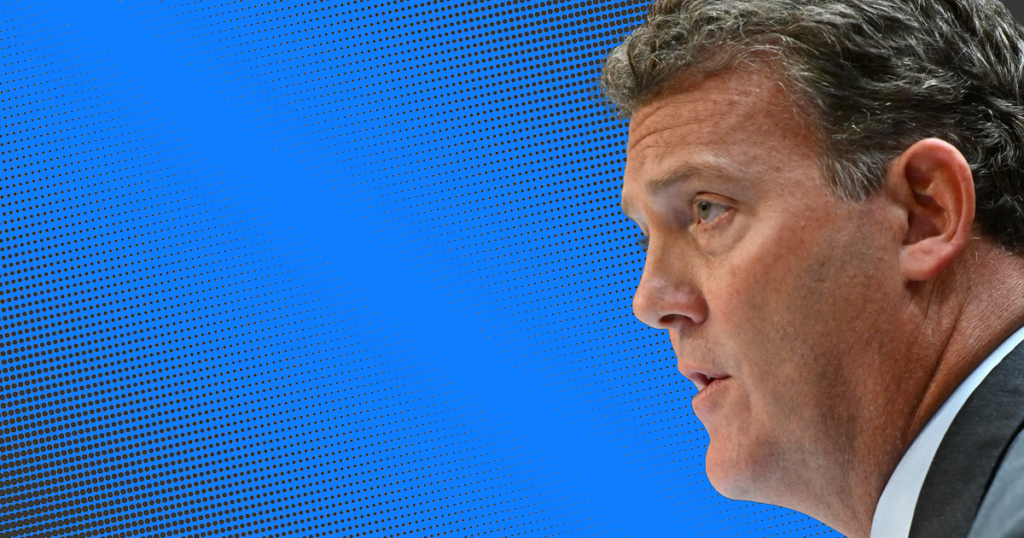
College sports role: Walker Jones is Executive Director of the Ole Miss-focused Grove Collective and a leader in The Collective Association who has testified in front of Congress
“For me personally, running a Power Five collective, my biggest worry is sustainability within the current model. I just think when you’re dealing with the vast majority of funding is donor-funded, and the prices continue to go up, as a collective operator at the Power Five level, sustainability from a funding standpoint is probably my biggest worry. At what point do our fans go, ‘I’m not paying a fan tax anymore?’ Because that’s essentially what they’re paying. Our fans who donate to our collective, they’re paying a fan tax. So they’re going, ‘Okay, I buy my suite, I buy my parking, I buy my season tickets. And now I give to the Grove Collective as a tax on that investment so I can enjoy and justify me buying those season tickets because I want to be competitive and I want to be successful.
“How long are the fans going to continue to stomach a 15% to 20% increase on an unofficial fan tax in the form of collective giving? Now if we keep winning 10 games like [football coach] Lane [Kiffin] did this year, and [men’s basketball coach] Chris Beard gets us to the Final Four. And [baseball coach] Mike Bianco gets back to Omaha like he did two years ago, then I don’t have to worry. But for schools like Ole Miss in the SEC, those are outliers. That’s not going to happen every year. I’m not going to win a national championship in baseball every year. I’m not going to get into the New Year’s Six bowl game every year. I’m not going to make the Final Four for basketball every year. So when you have that 7-5 year or don’t make March Madness or we don’t have a great year in baseball, can I survive?
“And then just philosophically, the big worry I have is just the employment question and what, on its face, it could do to college athletics as we know it.”
Dan Lust
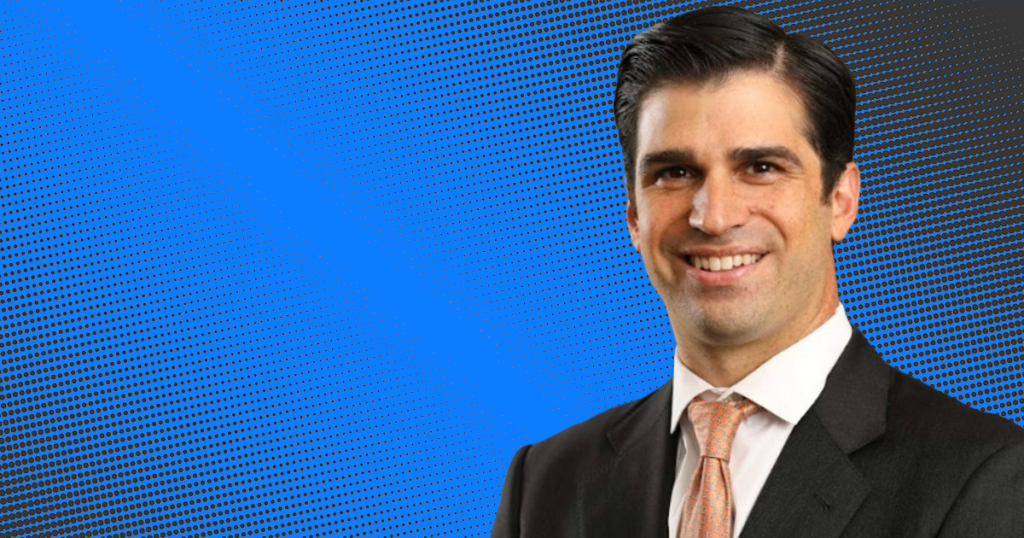
College sports role: Dan Lust is a sports attorney at Moritt Hock & Hamroff LLP and sports law professor at New York Law School
“I mean, it’s employment or the revenue sharing model. NIL and athletes’ rights. I think we’ve been dealing with them for a while. We don’t know what the landscape looks like when college athletes are considered employees or otherwise permitted to revenue share through state law. I think the combination of those two, it’s really college sports economics if you want to put it that way. It’s the top-down economics. If these schools start having to share money with players and treat them like employees, I just don’t know what it looks like.
“I don’t even know it’s looming at this point, it’s an issue. It’s where it’s really the conversation of NIL, athletes making money and player rights – that’s when it starts to run up against this concept of, well, the schools are threatening, if we have to revenue share with our players, or football is not making as much money, maybe it jeopardizes some of the other sports as we saw during COVID-19 when football wasn’t canceled, but every other sport was canceled. I think the fundamental changes to the college sports pie, I’m paying attention to that.”
Heather Lyke
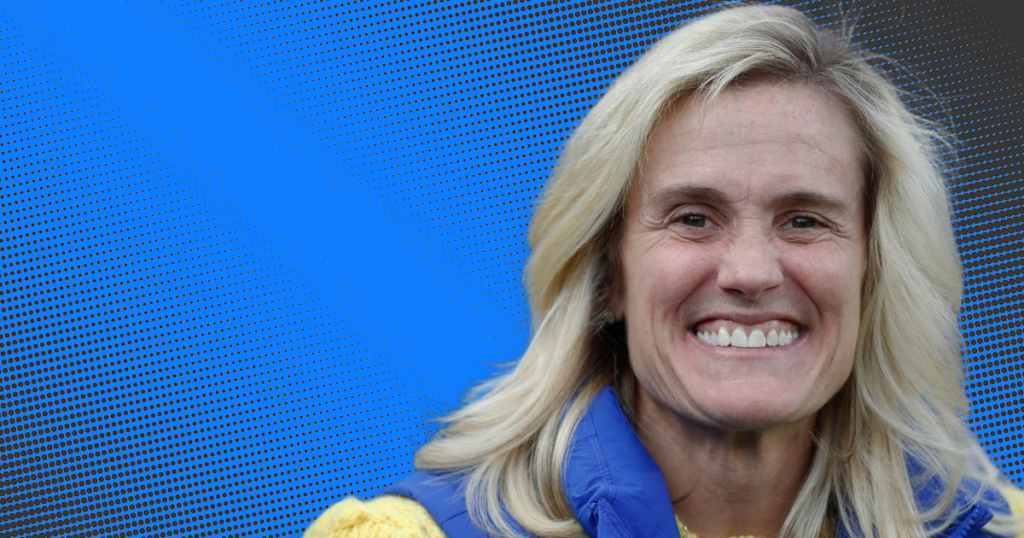
College sports role: Heather Lyke is Pittsburgh’s athletic director and an ACC representative on the NCAA Division I Council
“I do think this future model – it went from amateurism, then we called it the collegiate model, and now people are saying, ‘Oh, it’s quasi-professional. You have unrestricted free agency with no limits on how much you can pay.’ My biggest concern is how do we create something that’s actually sustainable and reasonable? There’s value that student-athletes bring for sure. Ok, what should we be ‘giving’ them for that value? And how should we be really documenting and managing it in a much better way?
“It’s an everyday issue. You want your players to get great, and then you’re like, ‘Ooh, then they’ll get stolen, then we have to pay them more.’ What is the real market? It’s every day. It’s changing quite a bit. It can be controlled more, I should say.”
Tom McMillen

College sports role: Tom McMillen is a former U.S. Congressman and current CEO of LEAD1 Association, which represents the athletics directors of the 133 member universities of the Football Bowl Subdivision
“The No. 1 issue is that college sports can’t determine its own destiny. You look at the NFL and the NBA, they pretty much decide their destiny. But college sports are caught up in whether they need a national preemptive NIL standard. They need to go to Congress to overrule these 30-some states that pass laws. They need to go to Congress for them to set rules without being sued for antitrust. They need to go to Congress to codify a non-employment model that would probably provide more benefits to revenue athletes but without blowing up the whole system.
“In other words, either you’re going to eventually evolve to an employee model or you’re going to have to have some hybrids. And those hybrids are going to have to be codified by Congress. Every major, major issue they tackle – and I give Charlie a lot of credit for moving the ball down on the field on a lot of these important issues. But these really big ones, they need Congress – and of all the times to need Congress. This is a really, really tumultuous period of time to have to deal with Congress.
“Charlie has done a phenomenal job, but there are a lot of hills to climb. They have to go to Congress to get things done – and we’ve never, ever been in a position like that. There’s a lot on the table. I’ve never seen anything like it in my association with college sports.”
Jacqie McWilliams Parker
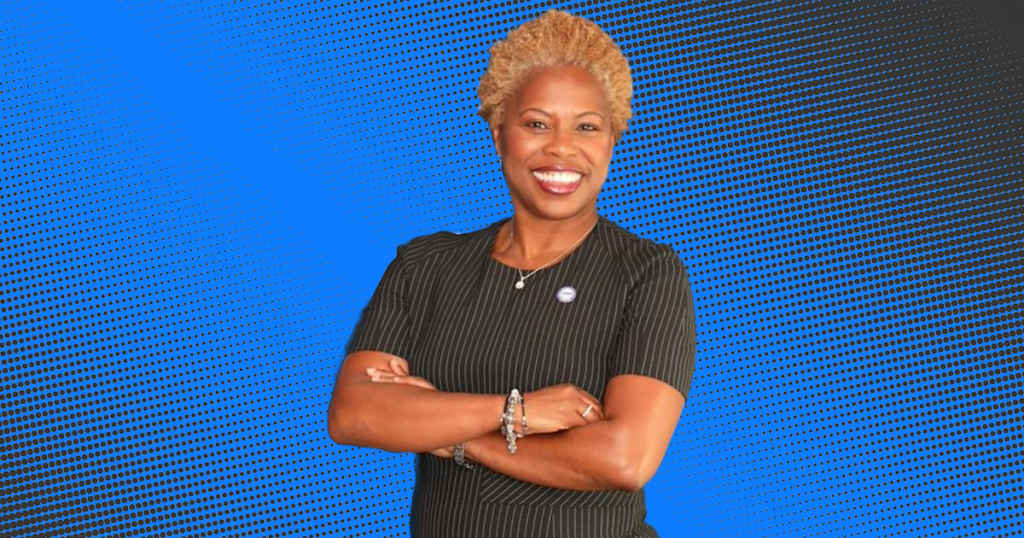
College sports role: Jacqie McWilliams Parker is the Commissioner of the Central Intercollegiate Athletic Association, which mostly consists of historically black colleges and universities
Top 10
- 1New
Vanderbilt field storm
SEC announces fine decision
- 2Hot
More sign-stealing?
Lane Kiffin singles out OU
- 3
Bryant Wesco injury
Dabo Swinney reveals severity
- 4Trending
DJ Lagway
Addresses his future at Florida
- 5
Mike Elko
Shreds media over PSU question
Get the Daily On3 Newsletter in your inbox every morning
By clicking "Subscribe to Newsletter", I agree to On3's Privacy Notice, Terms, and use of my personal information described therein.
“As a former student-athlete, a former coach and administrator, I’m just struggling with where college athletics is going. Where’s the innocence of just being able to compete and play? Have we always had issues and disparities in college athletics? Absolutely. I just feel like we get further and further away from permissible opportunities for some and not for others, or revenue that some have and others don’t have. And, again, that’s part of the structure.
“For those of us who really care about providing an education, and having the athletic experience a part of that, and we’re worried about all these other things that we’re going to have to legislate for our student-athletes. That concerns me because specifically for HBCUs, where we had limited access for education in the first place, that’s why we were established. And we’ve had limited resources at our institutions, and we still have been battling that.
“And now you have all these other details and intricacies of laws and an uneven playing field that continue to push us further away from providing some of the same things that our other colleagues and institutions can provide.”
Gloria Nevarez
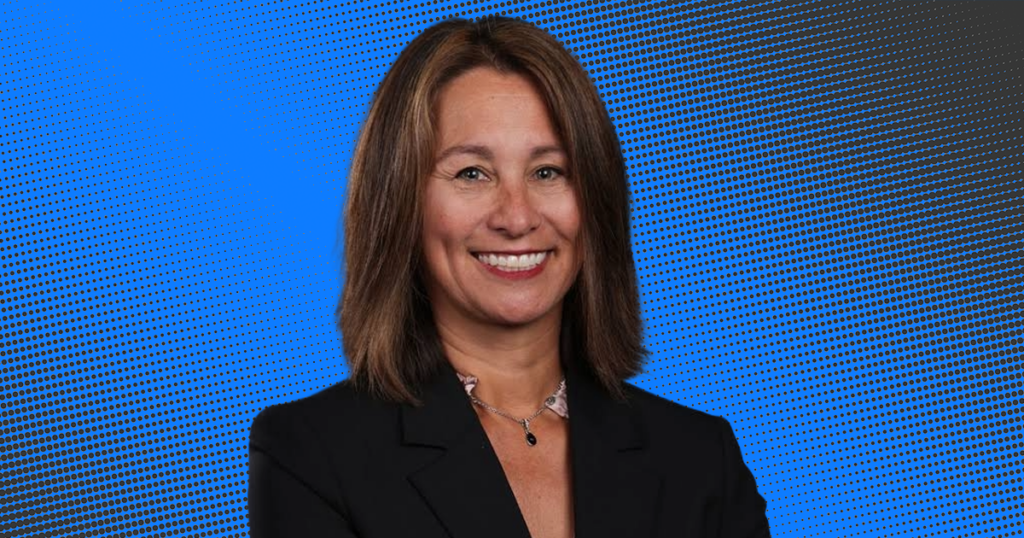
College sports role: Gloria Nevarez is the Mountain West Conference Commissioner
“This is No. 1, just because of the moment, not so much maybe if I sat down and really did a priority scale. But the NIT [National Invitation Tournament] allowing two [automatic power league] bids – and I realize this isn’t a national championship, but it’s an important postseason event – based on conference brand and revenue rather than an equitable postseason model. The additional AQ, based solely on brand, is to me, unconscionable, because what if a certain [power] league suddenly lags in performance? They are now, through the policy – not based on any current season performance or statistics, only historic brand value – awarded an extra spot. And that’s just dangerous. It is not right. We sent four teams to the tournament last year and had a Final Four team. Hello.
“If you wanted to lock in more AQs that awarded performance during that season, there certainly is a way to do it, without naming leagues by brand, and still come to the same result, but also with flexibility over time, as performance increased and decreased. It’s my opinion that the property [NIT] has been ignored. I served on the NIT selection committee, it was run with very few resources, and not a lot of attention was paid to it. So before you jump all the way to giving double AQs to certain brands, I just feel there’s so much more work that could have been done to build that property into a robust event. Instead, I think it died on the vine a bit. And this feels like a little bit of a panic reaction.”
Amy Perko
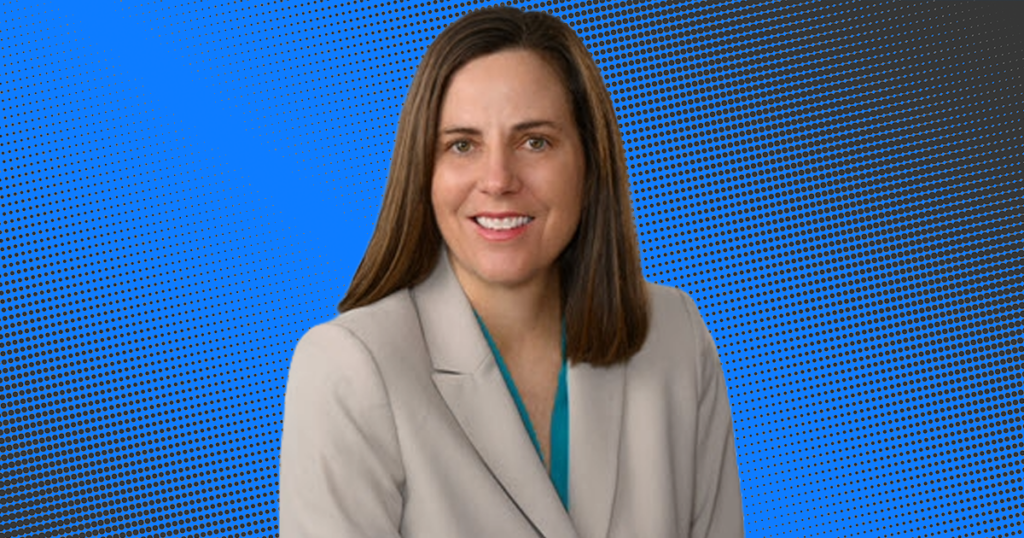
College sports role: Amy Perko is CEO of the Knight Commission on Intercollegiate Athletics
“The biggest issue in college sports right now is getting surprisingly little attention. The upcoming revenue distribution decisions of the governing board of the College Football Playoff will have an enormous impact on the future of FBS football and all sports in Division I. The CFP is expected to generate more than a billion dollars annually in new and uncommitted revenues from its expanded playoff – an amount that will dwarf the revenues from the NCAA’s March Madness tournaments.
“People are amazed to learn that the CFP board distributes all of its money to conferences with zero strings attached and that the NCAA receives no revenue from the CFP, even though the NCAA absorbs all the national costs to operate the sport of FBS football, including ever-increasing legal costs. The CFP board doesn’t earmark any money for specific purposes, like concussion research or football player safety.
“The Knight Commission has proposed common-sense changes to the CFP distribution policies that would require national football revenue to cover national operational costs for the sport. Our proposal also calls for earmarking at least half of the revenue to specifically advance FBS programs’ stated values of promoting athlete education, health and safety.
“A recent independent financial analysis for the Knight Commission found that if the CFP doesn’t change course, its multibillion-dollar windfall will dramatically accelerate the cost spiral of exorbitant football coaching salaries and ‘dead money’ severance payouts. Projections show that continuing ‘business-as-usual’ with new CFP revenue will lead to nearly half of all public institutions in ‘power’ conferences spending more just on their 11 football coaches’ compensation than total spending on all athletes’ tuition, housing, meals, cost of attendance stipends, medical expenses, and insurance coverage.
“That ‘crossover point’ – spending more on 11 football coaches’ compensation than on scholarship and medical benefits for all of their college athletes across all sports at their institution – is deeply at odds with the educational mission of taxpayer-supported public universities. It is troubling that institutionally reported data shows that nine public schools already have reached this problematic crossover point.
“A good start to reset spending priorities with new revenues would be to add independent directors to both the CFP and NCAA Division I governing boards. That reform is standard good practice for an obvious reason – having independent directors should help reduce the incentives for CFP and NCAA board members to follow their competitive and financial self-interests.”
David Ridpath
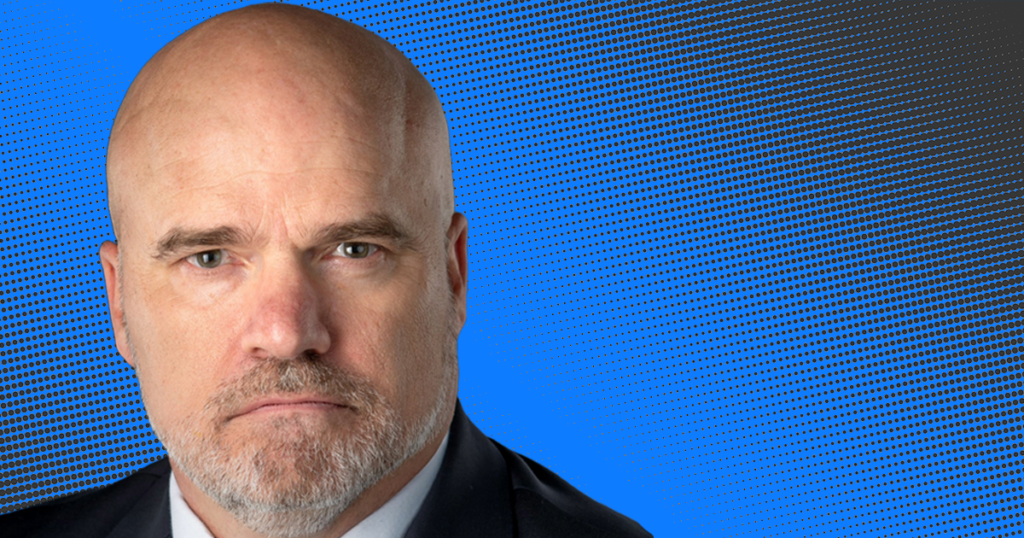
College sports role: David Ridpath is a professor of sports business at Ohio University who has appeared before numerous Congressional committees regarding college athletics
“It’s athlete rights and the industry’s relationship with education, as that drives everything in reform and really is Occam’s razor going forward.
“The athletes already are employees. You can’t say someone is a student but then treat them as an employee without the requisite benefits.
“I also think things like current eligibility standards, should full-time enrollment be required, sport minimums, etc., can be all negotiated. Why not provide a lifetime scholarship or education credits in turn for the years the athletes give as paid employees? Some may want to be plumbers, or mechanics or work in the arts. No reason to continue to try and put a square peg in a round hole.
“Let’s work the education options around the elite development of the athlete – similar to what other countries do. In the end, it will be the athletes and redefining the educational relationship that will mainly drive reform.”
Greg Sankey
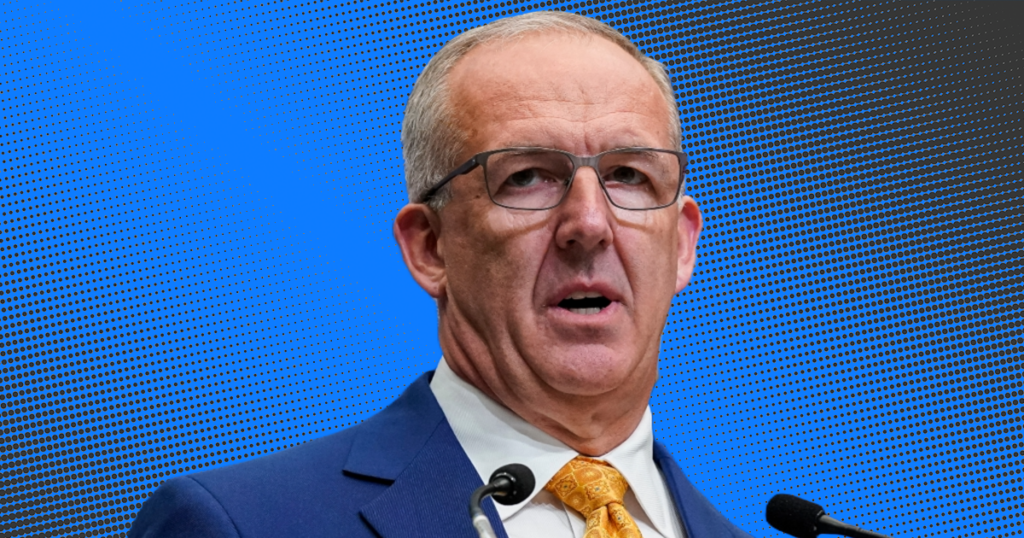
College sports role: Greg Sankey is the SEC Commissioner
“No. 1, we collectively have done a bad job of telling the story about the positive aspects present in our programs. And do I think everybody says we do things perfectly? No. But I do think things are done in an incredibly positive manner. I think we do things really well – not perfectly, but really well. But let’s not kid ourselves, again, in the big picture into believing the current status is the best that we can do for our college athletes. And I’ll go back to some of what’s happening at the state level, and probably going to be introduced again in 2024, which is state legislatures engaging in a race to the bottom so they can establish competitive success.
“In the way the state laws are now, a 16 or 17-year-old has to sort through a completely unregulated marketplace with no consumer protection for themselves. And they have to understand and navigate, ‘Well, where am I going to go to college as these offers are coming in?’ whether they’re real or not, because the state laws aren’t uniform, nor enforced. I don’t think that’s fair to young people. Young people ask us for uniformity. They want to know their competitors from other states are governed by the same rules. So they want some help in navigating the minefield that’s been introduced. While there are opportunities there, let’s not kid ourselves into thinking this is the best that we could do.
“The environment, we have to adapt. So we can’t say we’ve got it all right. I’m concerned about the threats to this broad-based offering of sports that has historically existed. If you radically flip the economic model, I haven’t seen the concern around what’s going to happen to our track and field and swimming and diving programs on a national level. So I think all of that’s connected.
“The changes in the media environment, that’s a reality we’re going to have to deal with. It’s going to continue adaptation. We’ve got great people working with us at Disney, ABC, and ESPN around our future.
“This discussion around how we effectively support young people who come to us as adolescents from all kinds of different backgrounds – educationally, geographically, economically, socially. How do we continue to make sure that we provide an effective transition from adolescence to adulthood? And [we] don’t put things in their way that when it’s time to go grab that first career opportunity, for most of them, we’ve altered their look at the grit, the determination required to be successful over a lifetime of experiences.”
Steven Simmons
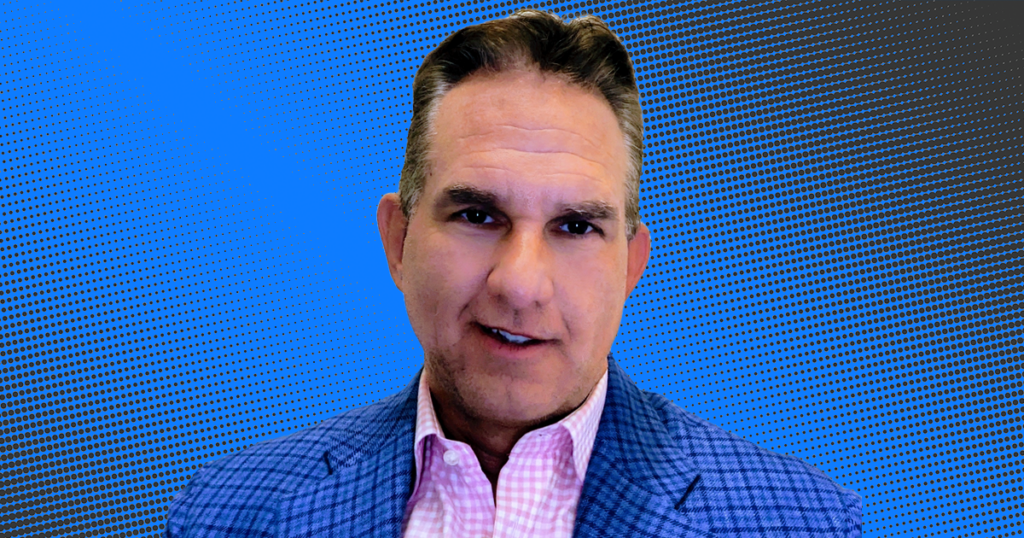
College sports role: Steven Simmons is the chief operating officer and co-founder of NIL Enterprise Solutions, which is focused on providing student-athletes with meaningful real-life education and career transition skills
“The biggest issue we see currently is that NIL has been a great equalizer for numerous athletes –especially athletes in non-revenue generating sports. However, too many schools outside of the Power Five are not taking enough steps to make NIL a very real opportunity for the athletes. Much of this comes down to a lack of education or resources available to take advantage of many of the opportunities out there.
“The lack of resources extends even further when taking mental health well-being into consideration. According to a recent University of Michigan study, approximately 30% of college athletes suffer from some form of mental health well-being imbalance. That number jumps to over 70% when an injury is involved – often coupled with suicidal ideation.
“Most universities offer some form of wellness checks including an on-staff therapist, but in many cases, mental health is not prioritized and is, in fact, stigmatized by many communities. And the resources available are often few and far between for already stretched athletic department budgets.
“It would be encouraging – whether as a rider in a federal bill or as a standard NIL protocol – a portion of revenue from corporate sponsorships or media rights should go towards a mental health well-being fund which could be utilized by the athletic departments to make better strides in protecting the athletes – especially those who suffer season or career-ending injuries.”
Julie Sommer

College sports role: Julie Sommer is the Executive Director of The Drake Group Education Fund, whose mission is to ensure that the promise of college athletics is realized for all stakeholders
“How conference realignment and evolving incentives and collective-driven compensation threaten to erode already fragile commitments to equity and program diversity. Even at the Division I level, many programs are in the red, and making choices to seek football TV revenue to buoy departments that simply cannot sustain the additional travel, loss of classroom and study time, erosion of traveling fan support, and likely loss of athletes for whom the tradeoffs of extended travel, loss of campus engagement, and increased risk of injury outweigh the benefits of participation.”
Jason Stahl

College sports role: Jason Stahl is the founder of the College Football Players Association
“That one’s easy. It’s what is going to happen with the CFP expansion money. That should be the top issue for anyone who is paying attention to college athletics. Because if you don’t put in guardrails, on how $1.4 billion per year of new, unaccounted-for revenue is going to be used, if the players don’t get organized and demand that that money be shared with them, and be put in some type of medical trust fund for the injuries that they are going to sustain for the increase in games that they are being asked to take on, then we know what that money is going to be used for – whatever the administrators want to use it for. And we see how they’ve been spending that money over the past decade.
“We are going to be making sure that everyone understands that they’re trying to keep all that $1.4 billion for themselves, for the administrative class, for the coaches. They want it all. They don’t want to share with the players. Nobody asked the players. Nobody negotiated with the players. I mean, my God, people rose up when the NFL expanded one game per year. And a lot of people had heavy criticisms of that. They expand from four teams to 12 without a peep, without a fig leaf pretending that this is anything but a cash grab.
“To hell with the athlete welfare and what this means for the athletes themselves.”
Ayden Syal
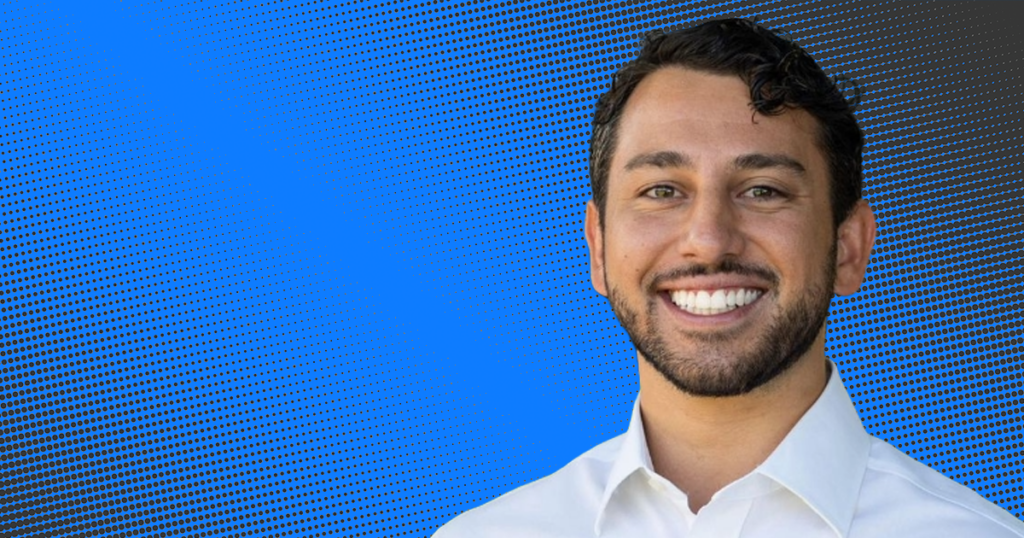
Current college sports role: Ayden Syal is the CEO and co-founder of MOGL, a leading athlete marketplace and NIL operations software provider
“The NCAA and its member institutions need to figure out a compensation model for its athletes, specifically those that participate and drive the billions in television revenue to the athletic departments. What this means and how it is ultimately structured remains to be seen. But it’s crucial that the major programs and conferences work together to create a model that works so that NIL isn’t the only aspect of collegiate athletics that is working to eliminate the suppression of the marketplace.”
Thomas Thomas Jr.
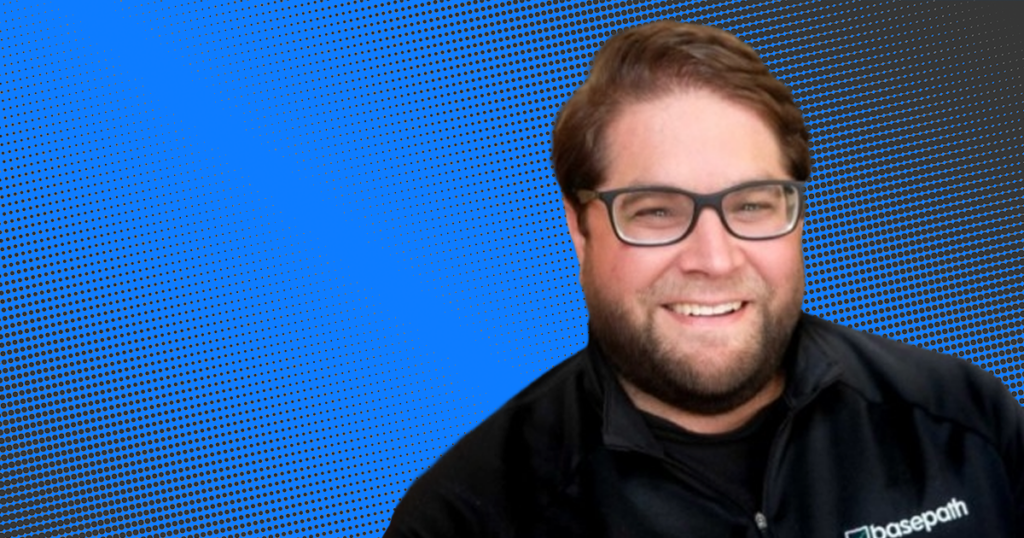
College sports role: Thomas Thomas Jr. is co-founder and CEO of Basepath, a platform that automates NIL deals for student-athletes, athletic departments and brands
“Student-athletes don’t have a single place where they can view and manage their NIL and financial lives. There are countless marketplaces, collectives, agents, brand deals, etc. An athlete has dozens of places where they can receive and manage deals. Imagine, if you were getting a dozen different paychecks and having to understand what tasks you had to do for each, what documentation you needed to have, what contracts you needed to review, what taxes you had to pay, etc.
“At the same time, you’re required to disclose all of those payments within 30 days to a governing body. That to me is the No. 1 issue student-athletes are facing.”
Mit Winter
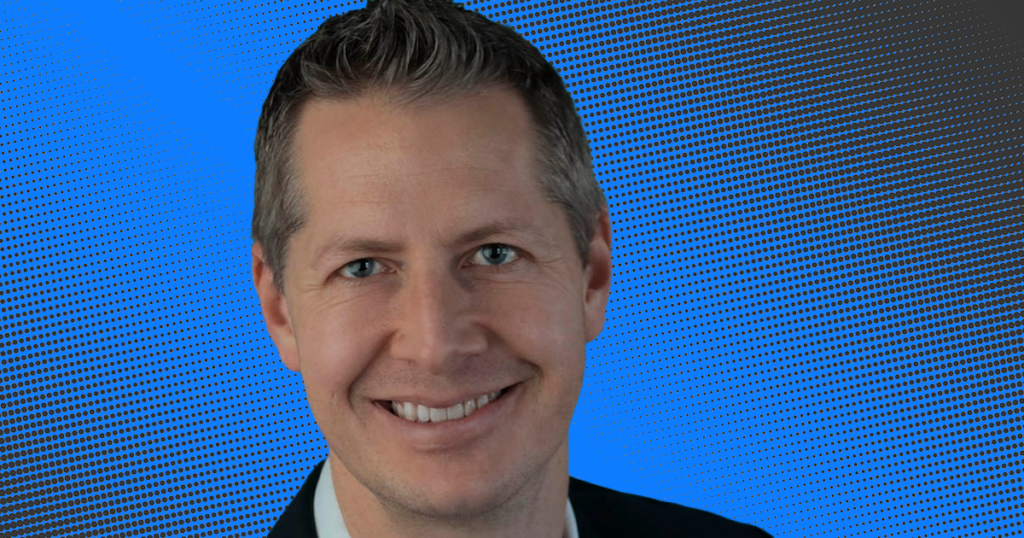
College sports role: Mit Winter is an NIL expert and college sports attorney at Kennyhertz Perry
“The college athletics issue I think about the most right now is what the future model is going to look like and who is going to play in role in building that model.
“Anyone paying attention knows that the current model won’t be around much longer because of the legal pressure that’s being exerted on it. But will the new model be created piecemeal by courts and the NLRB? Or will some university and college athletics leaders step up and take the lead on creating a model that complies with the law and creates long-term certainty and stability for all involved? That’s the biggest question facing college athletics right now.
“Change can be hard. But sometimes it’s necessary. That’s where college athletics is at right now.”
Tom Wistrcill
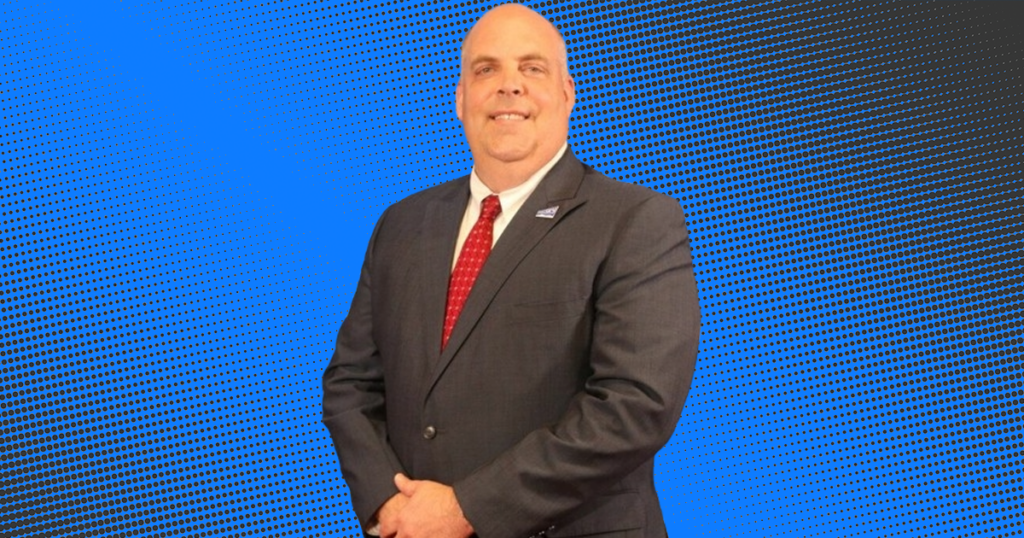
Current college sports role: Tom Wistrcill is the Big Sky Conference commissioner
“Two things, sorry. First, how the House case will play out for the FBS Conferences could have a huge impact on all our futures. And No. 2, how we seem to have lost our way with every decision driven by money. Conference realignment, media deals, NIL, transfer portal incentives, coaches salaries and buyouts, etc. We don’t talk about student-athlete welfare, graduation and celebrating the joy of college sports enough anymore.”
On3’s Jeremy Crabtree, Pete Nakos and Eric Prisbell contributed to this report.